230 results found for 'Model'. Prev |1|2|3|4|5|6|7|8|9|10 | Next | View 100 per page
Low relevance matches: 109 other results may be of interest to you. Show low relevance matches
Atomic Models - All matter is made of atoms which are composed of protons, neutrons and electrons; natural radioactivity arises from the decay of nuclei in atoms ACSSU182 Year 9 Physical Sciences
Energy Transfer - Energy transfer through different mediums can be explained using wave and particle models ACSBL029 Year 11 Biodiversity and the interconnectedness of life
Ecosystem dynamics - Models of ecosystem interactions (for example, food webs, successional models) can be used to predict the impact of change and are based on interpretation of and extrapolation from sample data (for example, data derived from ecosystem surveying techniques ACSBL085 Year 12 Heredity and continuity of life
DNA genes and the continuity of life - Frequencies of genotypes and phenotypes of offspring can be predicted using probability models, including Punnett squares, and by taking into consideration patterns of inheritance, including the effects of dominant, autosomal and sex-linked alleles and mu ACSBL110 Year 12 Maintaining the internal environment
Homeostasis - Homeostasis involves a stimulus response model in which change in external or internal environmental conditions is detected and appropriate responses occur via negative feedback; in vertebrates, receptors and effectors are linked via a control centre by n ACSCH018 Year 11 Chemical fundamentals
Properties and structure of atoms - Atoms can be modelled as a nucleus surrounded by electrons in distinct energy levels, held together by electrostatic forces of attraction between the nucleus and electrons; atoms can be represented using electron shell diagrams (all electron shells or val ACSCH032 Year 11 Chemical fundamentals
Properties and structure of materials - The characteristic properties of metals (for example, malleability, thermal conductivity, electrical conductivity) are explained by modelling metallic bonding as a regular arrangement of positive ions (cations) made stable by electrostatic forces of attra ACSCH056 Year 11 Molecular interactions and reactions
Intermolecular forces and gases - The shapes of molecules can be explained and predicted using three dimensional representations of electrons as charge clouds and using valence shell electron pair repulsion (VSEPR) theory ACSCH099 Year 12 Equilibrium acids and redox reactions
Chemical equilibrium systems - The relationship between acids and bases in equilibrium systems can be explained using the Brønsted Lowry model and represented using chemical equations that illustrate the transfer of hydrogen ions ACSCH103 Year 12 Equilibrium acids and redox reactions
Oxidation and reduction - A range of reactions, including displacement reactions of metals, combustion, corrosion, and electrochemical processes, can be modelled as redox reactions involving oxidation of one substance and reduction of another substance ACSCH104 Year 12 Equilibrium acids and redox reactions
Oxidation and reduction - Oxidation can be modelled as the loss of electrons from a chemical species, and reduction can be modelled as the gain of electrons by a chemical species; these processes can be represented using half equations ACSPH063 Year 11 Linear Motion and Waves
Linear motion and force - Newton’s Three Laws of Motion describe the relationship between the force or forces acting on an object, modelled as a point mass, and the motion of the object due to the application of the force or forces ACSPH076 Year 11 Linear Motion and Waves
Waves - A wave model explains a wide range of lightrelated phenomena including reflection, refraction, total internal reflection, dispersion, diffraction and interference; a transverse wave model is required to explain polarisation ACSPH139 Year 12 Revolutions in modern physics
Quantum theory - The Bohr model of the hydrogen atom integrates light quanta and atomic energy states to explain the specific wavelengths in the hydrogen spectrum and in the spectra of other simple atoms; the Bohr model enables line spectra to be correlated with atomic en ACSCH031 Year 11 Chemical fundamentals
Properties and structure of materials - The properties of ionic compounds (for example, high melting point, brittleness, ability to conduct electricity when liquid or in solution) are explained by modelling ionic bonding as ions arranged in a crystalline lattice structure with forces of attract ACSPH071 Year 11 Linear Motion and Waves
Waves - The mechanical wave model can be used to explain phenomena related to reflection and refraction ACSPH074 Year 11 Linear Motion and Waves
Waves - Light exhibits many wave properties; however, it cannot be modelled as a mechanical wave because it can travel through a vacuum ACSPH075 Year 11 Linear Motion and Waves
Waves - A ray model of light may be used to describe reflection, refraction and image formation from lenses and mirrors ACSPH140 Year 12 Revolutions in modern physics
Quantum theory - On the atomic level, energy and matter exhibit the characteristics of both waves and particles
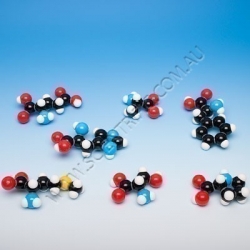

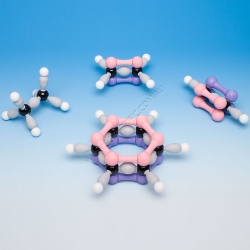

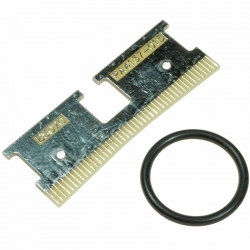
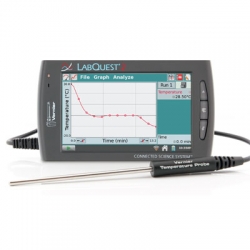
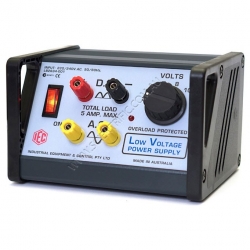


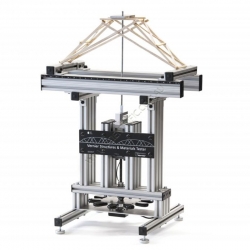
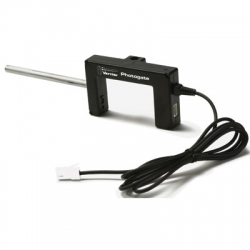
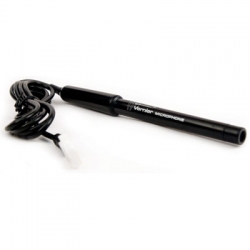
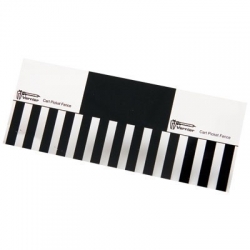
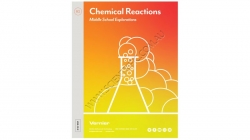




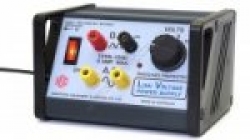
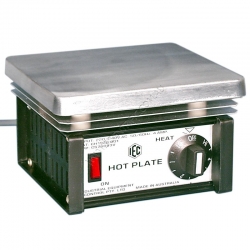

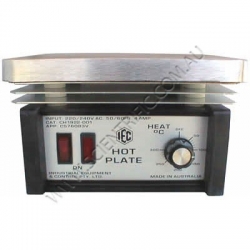

230 results found for 'Model'. Prev |1|2|3|4|5|6|7|8|9|10 | Next | View 100 per page
Low relevance matches: 109 other results may be of interest to you. Show low relevance matches
Curriculum resources related to 'Model'
ACSSU177 Year 9 Chemical SciencesAtomic Models - All matter is made of atoms which are composed of protons, neutrons and electrons; natural radioactivity arises from the decay of nuclei in atoms ACSSU182 Year 9 Physical Sciences
Energy Transfer - Energy transfer through different mediums can be explained using wave and particle models ACSBL029 Year 11 Biodiversity and the interconnectedness of life
Ecosystem dynamics - Models of ecosystem interactions (for example, food webs, successional models) can be used to predict the impact of change and are based on interpretation of and extrapolation from sample data (for example, data derived from ecosystem surveying techniques ACSBL085 Year 12 Heredity and continuity of life
DNA genes and the continuity of life - Frequencies of genotypes and phenotypes of offspring can be predicted using probability models, including Punnett squares, and by taking into consideration patterns of inheritance, including the effects of dominant, autosomal and sex-linked alleles and mu ACSBL110 Year 12 Maintaining the internal environment
Homeostasis - Homeostasis involves a stimulus response model in which change in external or internal environmental conditions is detected and appropriate responses occur via negative feedback; in vertebrates, receptors and effectors are linked via a control centre by n ACSCH018 Year 11 Chemical fundamentals
Properties and structure of atoms - Atoms can be modelled as a nucleus surrounded by electrons in distinct energy levels, held together by electrostatic forces of attraction between the nucleus and electrons; atoms can be represented using electron shell diagrams (all electron shells or val ACSCH032 Year 11 Chemical fundamentals
Properties and structure of materials - The characteristic properties of metals (for example, malleability, thermal conductivity, electrical conductivity) are explained by modelling metallic bonding as a regular arrangement of positive ions (cations) made stable by electrostatic forces of attra ACSCH056 Year 11 Molecular interactions and reactions
Intermolecular forces and gases - The shapes of molecules can be explained and predicted using three dimensional representations of electrons as charge clouds and using valence shell electron pair repulsion (VSEPR) theory ACSCH099 Year 12 Equilibrium acids and redox reactions
Chemical equilibrium systems - The relationship between acids and bases in equilibrium systems can be explained using the Brønsted Lowry model and represented using chemical equations that illustrate the transfer of hydrogen ions ACSCH103 Year 12 Equilibrium acids and redox reactions
Oxidation and reduction - A range of reactions, including displacement reactions of metals, combustion, corrosion, and electrochemical processes, can be modelled as redox reactions involving oxidation of one substance and reduction of another substance ACSCH104 Year 12 Equilibrium acids and redox reactions
Oxidation and reduction - Oxidation can be modelled as the loss of electrons from a chemical species, and reduction can be modelled as the gain of electrons by a chemical species; these processes can be represented using half equations ACSPH063 Year 11 Linear Motion and Waves
Linear motion and force - Newton’s Three Laws of Motion describe the relationship between the force or forces acting on an object, modelled as a point mass, and the motion of the object due to the application of the force or forces ACSPH076 Year 11 Linear Motion and Waves
Waves - A wave model explains a wide range of lightrelated phenomena including reflection, refraction, total internal reflection, dispersion, diffraction and interference; a transverse wave model is required to explain polarisation ACSPH139 Year 12 Revolutions in modern physics
Quantum theory - The Bohr model of the hydrogen atom integrates light quanta and atomic energy states to explain the specific wavelengths in the hydrogen spectrum and in the spectra of other simple atoms; the Bohr model enables line spectra to be correlated with atomic en ACSCH031 Year 11 Chemical fundamentals
Properties and structure of materials - The properties of ionic compounds (for example, high melting point, brittleness, ability to conduct electricity when liquid or in solution) are explained by modelling ionic bonding as ions arranged in a crystalline lattice structure with forces of attract ACSPH071 Year 11 Linear Motion and Waves
Waves - The mechanical wave model can be used to explain phenomena related to reflection and refraction ACSPH074 Year 11 Linear Motion and Waves
Waves - Light exhibits many wave properties; however, it cannot be modelled as a mechanical wave because it can travel through a vacuum ACSPH075 Year 11 Linear Motion and Waves
Waves - A ray model of light may be used to describe reflection, refraction and image formation from lenses and mirrors ACSPH140 Year 12 Revolutions in modern physics
Quantum theory - On the atomic level, energy and matter exhibit the characteristics of both waves and particles
Products related to 'Model'

Molymod Amino Acid Set of Seven Models
MOLYMOD AMINO ACID 7 MODEL SET
Use this set of genuine Molymod® atoms to build a model of each of 7 L-configuration amino acids.
Includes a total of 125 atom parts (23mm red oxygen, 23mm blue nitrogen, 23mm black carbon, 23mm yellow sulphur and 19mm white dome hydro...
Order code: MKA-120-7

Molymod Amino Acid Set of 20 Models
MOLYMOD AMINO ACID 20 MODEL SET
Use this set of genuine Molymod® atoms to build a model of each of the 20 common amino acids.
Includes a total of 385 atom parts (23mm red oxygen, 23mm blue nitrogen, 23mm black carbon and 19mm white dome hydrogen) with links (short whi...
Order code: MKA-121-20

Molymod Molecular Orbital Models 4
MOLYMOD MOLECULAR ORBITAL ORGANIC STRUCTURES SET
This set contains sufficient parts to make the four basic organic molecular orbital models pictured.
The models show sigma- and pi-bonding orbitals and the concept of hybridisation and delocalisation.
Included:
...
Order code: MOS-900-4

Molymod Atomic Orbital Models 14
MOLYMOD ATOMIC ORBITAL 14-MODEL COLLECTION SET
This set contains sufficient parts to make the 14 easy-to-assemble atomic orbitals shown.
Pear-shaped lobes represent the two wave phases of the p and d atomic orbitals.
Each model comes with its own transparent base.
...
Order code: MOS-901-14

IEC Van de Graaff Comb and Band for all models
IEC VAN DE GRAAFF PCB COMB AND BAND FOR ALL MODELS
A replacement PCB comb and band to fit IEC Van De Graaff generators.
Order code: PA4137-015
IEC Van de Graaff Pulley Top Shaft/Bearings all Models
IEC VAN DE GRAAFF PULLEY AND TOP SHAFT/BEARINGS FOR ALL MODELS
A replacement IEC Van de Graaff generator upper metal coated pulley only, with sealed ball bearings and shaft.
Suits all old and new models.
Order code: PA4140-012
IEC Van de Graaff Pulley Bottom all Models
IEC VAN DE GRAAFF BOTTOM PULLEY FOR ALL MODELS
A replacement IEC Van De Graaff plastic lower drive pulley only.
Suits both old and new models although the mounting method is different between the models.
Order code: PA4140-013

Vernier LabQuest 2 Data Logger and Interface
No longer available replaced by LabQuest 3
Vernier's popular LabQuest 2 is now discontinued as it has been superseded by the LABQ3 Vernier LabQuest 3 a powerful, advanced, easy-to-navigate and versatile datalogging solution for STEM students. The Vernier LabQues... Order code: LABQ2
Vernier's popular LabQuest 2 is now discontinued as it has been superseded by the LABQ3 Vernier LabQuest 3 a powerful, advanced, easy-to-navigate and versatile datalogging solution for STEM students. The Vernier LabQues... Order code: LABQ2


IEC Power Supply 2 to 12V AC/DC 5 Amp LED Overload
IEC POWER SUPPLY 2-12V AC/DC 5A WITH OVERLOAD LED
Our recommended model because a handy front panel LED indicates when the overload of this power supply has tripped and reset.
In all other details it is identical to model LB26...
Order code: LB2634-001


| Purchase QTY: (Each) | 1+ |
|---|---|
| Scientrific's price | $223.60 |
| Educational special | $194.00 |
| CLICK FOR QTY PRICING | |
| Prices exclude GST and freight | |

Vernier Logger Pro 3 Data Logging Software
Logger Pro will be discontinued in December 2024, replaced by Graphical Analysis Pro, Vernier Video Analysis, Vernier Instrumental Analysis and Vernier Spectral Analysis.
VERNIER LOGGER PRO 3
Vernier's Logger Pro is an easy to use data-collection and analysis software for Windows and Mac computers. The generous Site Licence covers a single school campus or in the case of a university, a single department at a single campus. The licence in...
Order code: LP



Vernier Logger Pro 3 Software Electronic Version
VERNIER LOGGER PRO 3 DOWNLOAD
Vernier's Logger Pro is an easy to use data-collection and analysis software for Windows and Mac computers. The generous Site Licence covers a single school campus or in the case of a university, a single department at a single campus. The l...
Order code: LP-E



Vernier Structures & Materials Tester
Discontinued
VERNIER STRUCTURES AND MATERIALS TESTER Evaluate the strength of model bridges and engineered structures by measuring the applied load with the Vernier Structures and Materials Tester. Utilizing both load and displacement sensors allows students to evaluate properties of ... Order code: VSMT
VERNIER STRUCTURES AND MATERIALS TESTER Evaluate the strength of model bridges and engineered structures by measuring the applied load with the Vernier Structures and Materials Tester. Utilizing both load and displacement sensors allows students to evaluate properties of ... Order code: VSMT

Vernier Photogate
VERNIER PHOTOGATE
The Vernier photogate is used for speed and acceleration measurements of objects passing through the gate. The object blocks an infrared beam as it passes. Motion data can be determined in software from the timing of beam blocking.
This general-purpos...
Order code: VPG-BTD



Vernier Microphone
VERNIER MICROPHONE
Use the Vernier microphone to display and study the waveforms of sounds from voices and musical instruments. It is also appropriate for speed of sound experiments.
Activities with sound waves:
• Demonstrate how the wave pattern changes when ...
Order code: MCA-BTA



Vernier Cart Picket Fence
VERNIER CART PICKET FENCE
The Vernier Cart Picket Fence consists of a piece of plastic with alternating clear and black stripes which can be used to interrupt the light beam in photogates.
It can be easily fitted to a Vernier Dynamics Cart, Collision Trolley, Air Track...
Order code: PF-CART

Vernier Exploring Chemical Reactions - E Version
VERNIER EXPLORING CHEMICAL REACTIONS EBOOK
Explore various types of chemical reactions with your Years 4-8 Middle School students as they build a model to explain what goes on at the molecular level during a chemical reaction. Students investigate endothermic and exotherm...
Order code: MSB-CR-E

Vernier Exploring Earth and Space Science - E Version
VERNIER EXPLORING EARTH AND SPACE SCIENCE EBOOK
Explore the Earth science topics of weather, soil and water quality with your Years 4-8 Middle School students. Collect, share and analyze sensor data with Vernier's free Graphical Analysis 4 software. The GA4 app facilitate...
Order code: MSB-ESS-E

Renewable Energy with Vernier
RENEWABLE ENERGY WITH VERNIER
The Renewable Energy with Vernier lab book features 26 experiments in wind and solar energy with a combination of explorations, traditional experiments, inquiry investigations, engineering projects and more. In these experiments, students lea...
Order code: REV

Renewable Energy with Vernier - Electronic Version
RENEWABLE ENERGY WITH VERNIER - ELECTRONIC
The Renewable Energy with Vernier lab book features 26 experiments in wind and solar energy with a combination of explorations, traditional experiments, inquiry investigations, engineering projects and more. In these experiments,...
Order code: REV-E

Space Exploration Experiment Kit
The Planets, Moon, Stars, Solar System & Rockets
Blast off on a mission to explore outer space and the objects in it. Learn about rocket propulsion with balloons and chemically powered rockets. Build a telescope and star map to investigate the stars and constellations. Assemble ...
Order code: 662714



IEC Power Supply 2 to 12V AC/DC
IEC POWER SUPPLY 2-12V AC/DC 5A
This general purpose mains powered power supply is a robust and compact unit designed for general laboratory use. It is suitable for most laboratory experiments where close voltage regulation and DC ripple are not important. Output is up to...
Order code: LB2633-001

IEC Hot Plate Simmerstat Plain Top 240V AC
IEC HOT PLATE SIMMERSTAT CONTROL PLAIN TOP 240V AC
A general purpose 240V AC 600W laboratory hot plate with a 200x180mm high temperature alloy top plate for even plate temperature.
The 'Simmerstat' temperature control provides heat adjustment from zero to full over a s...
Order code: CH1920-001



IEC Hot Plate Simmerstat PTFE Top 240V AC
IEC HOT PLATE SIMMERSTAT CONTROL PTFE PLATE 240V AC
A general purpose 240V AC 600W laboratory hot plate with a 200x180mm high temperature alloy PTFE (Teflon) coated top plate for even plate temperature.
The 'Simmerstat' temperature control provides heat adjustment from...
Order code: CH1921-001



IEC Hot Plate Thermostat Plain Top 240V AC
IEC HOT PLATE THERMOSTAT CONTROL PLAIN TOP 240V AC
A general purpose 240V AC 600W laboratory hot plate with a 200x180mm high temperature alloy top plate for even plate temperature.
The 'Thermostat' temperature control provides continuous adjustment of plate temperature...
Order code: CH1922-001



IEC Hot Plate Thermostat PTFE Top 240V AC
IEC HOT PLATE THERMOSTAT CONTROL PTFE PLATE 240V AC
A general purpose 240V AC 600W laboratory hot plate with a 200x180mm high temperature alloy PTFE (Teflon) coated top plate for even plate temperature.
The 'Thermostat' temperature control provides continuous adjustmen...
Order code: CH1923-001


230 results found for 'Model'. Prev |1|2|3|4|5|6|7|8|9|10 | Next | View 100 per page


